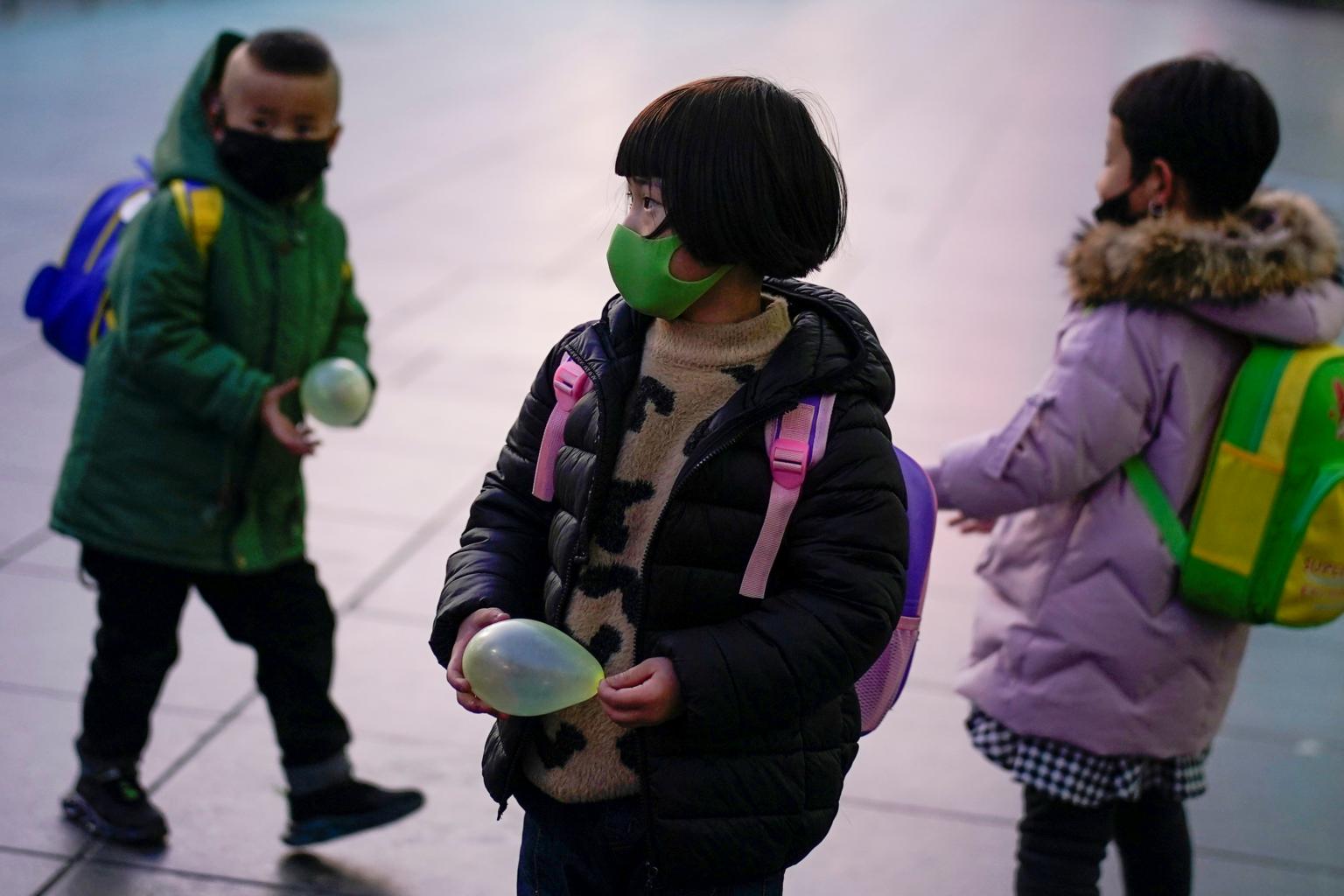Older children less vulnerable to Covid-19 than infants, toddlers: Study
Sign up now: Get insights on Asia's fast-moving developments

Children wearing face masks seen at a railway station in Shanghai on March 5, 2020.
PHOTO: REUTERS
BEIJING (CAIXIN GLOBAL) - Younger children are more likely to suffer severe symptoms than older ones after contracting the coronavirus, according to a new study, which also adds to a growing body of research showing that children suffer from the disease less severely than adults.
The latest study on paediatric Covid-19 was one of the biggest to date, with researchers from the paediatric division of the medical school at Shanghai Jiao Tong University analysing 2,143 cases that occurred between Jan 16 and Feb 8. The results were published in the journal Pediatrics.
Of the cases in the study, the average age was seven years old, with 379 cases involving children one year old or younger. Boys accounted for 1,213 cases, or 56.6 per cent of the total, while girls made up the remaining 930, or 43.4 per cent.
The research showed that the number of cases increased through the end of January and peaked on Feb 1, before starting to come down. It also revealed a clear trend of movement of infections from central China's Hubei province into areas surrounding it.
Of the cases studied, 4.4 per cent had no symptoms, 50.9 per cent had only mild symptoms and 38.8 per cent had moderate symptoms, accounting for 94.1 per cent of all cases.
The remaining 5.9 per cent were serious and critical cases, which was well below the 18.5 per cent ratio for adults who suffered more serious symptoms.
One death among the group was a 14-year-old boy from south-central China's Hunan province who died on Feb 7.
Other research has found similar results, though no one is sure exactly why children seem to suffer from the virus at much lower rates of severity than adults.
The authors of the latest paper proposed that children could suffer less because they are generally more pampered, and thus tend to have less contact with sick people and other viral sources.
Children may also be less sensitive to the virus because the ACE2 receptor proteins in their tissue - the pathway through which the virus infects human cells - are less mature and have less binding ability, the researchers said.
They added that children also tend to suffer more respiratory infections in winter than adults, which may give them better ability to fight off disease.
While the virus is generally less severe in children than adults, it can be more troublesome for small children, especially infants.
The data showed that children less than one year old who got the disease suffered severe to critical symptoms 10.6 per cent of the time. The ratio went down after that, to 7.3 per cent for children ages one to five, to just 3 per cent for those 16 and older.
Several other studies have shown that children tend to have longer incubation and longer virus-shedding periods than adults.
Family cluster infection is the major cause of cases in children, which can trigger community outbreaks if not identified in time, researchers warned.
This story was originally published by Caixin Global.


